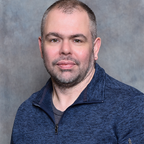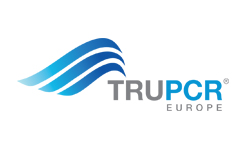Molecular Pathology
Molecular Pathology: An expanding discipline
Molecular Pathology
Molecular Pathology: An expanding discipline
1pm – 1.30pm BST, 25 September 2023 ‐ 30 mins
Molecular Pathology
Abstract
The undeniable growth of molecular pathology in biomedical science continues and is now an established discipline in its own right. At present, the IBMS offers a 'Certificate of Expert Practice', and to this will be added a 'Specialist Diploma', the latter consisting of a number of independent but linked modules.
Andrew's talk will be providing an overview of these two qualifications, and where they sit in the IBMS's qualifications structure.
Learning outcomes
This presentation will give:
- Awareness of the new Molecular Pathology Advisory Panel
- Knowledge of the new Specialist Diploma in Molecular Pathology
- Updates on the non-coding RNAs
Speakers
Spatial profiling using multi-omic approaches (SARSCoV- 2)
Molecular Pathology
Spatial profiling using multi-omic approaches (SARSCoV- 2)
1.30pm – 2pm BST, 25 September 2023 ‐ 30 mins
Molecular Pathology
Learning outcomes
Delegates will learn and understand:
- What spatial profiling is about
- Multi-omic techniques on tissues
- How combining spatial profiling and multi-omic approaches leads to a better understanding of the pathophysiology of disease.
Speakers
The role of the liquid biopsy in cancer diagnosis and monitoring
Molecular Pathology
The role of the liquid biopsy in cancer diagnosis and monitoring
2pm – 2.30pm BST, 25 September 2023 ‐ 30 mins
Molecular Pathology
Learning outcomes
Delegates attending this presentation will have:
An understanding of the liquid biopsy, including:
- why is circulating tumour DNA (ctDNA) sampling useful
- technical considerations
- clinical applications of liquid biopsies
Speakers
Bioinformatics and its clinical impact
Molecular Pathology
Bioinformatics and its clinical impact
2.30pm – 3pm BST, 25 September 2023 ‐ 30 mins
Molecular Pathology
Abstract
An overview of how Bioinformatics has developed within Anthony Nolan, it's key projects and its impact moving forward. Areas covered will include:
- A brief overview of Bioinformatics
- Using Bioinformatics at Anthony Nolan;
- The IPD reference Databases, in particular the IPD-IMGT/HLA Database
- Population genetics of the HLA register
- An insight into HLA sequencing and clinical impact
- The future of bioinformatics at Anthony Nolan
Learning outcomes
Delegates attending this presentation will have:
- A brief overview of Bioinformatics
- What the IPD-IMGT/HLA Database is and registry analysis/population genetics
- Insight into HLA sequencing and clinical impact
Speakers

Dr James Robinson
Head of Bioinformatics , The Anthony Nolan Trust, The Royal Free Hospital NHS Foundation Trust
EQA – keeping pace with Molecular Pathology
Molecular Pathology
EQA – keeping pace with Molecular Pathology
3.45pm – 4.15pm BST, 25 September 2023 ‐ 30 mins
Molecular Pathology
Abstract
Molecular testing is now part of the standard of care pathway for many types of solid tumours with new tests being required to be introduced into laboratories quite rapidly. As part of the quality process external quality assessment (EQA) is required to ensure that the results obtained in this testing are accurate.
This talk will provide an overview of how EQAs for molecular pathology are delivered, summarise the results for some of these EQAs highlighting some of the issues observed. It will also highlight some of the different technologies used for testing and how reporting of results is assessed in the EQAs
Learning outcomes
Delegates will learn and understand:
- How GenQA organises EQA schemes
- Which different methods are used by laboratories for testing
- The pitfalls in testing and reporting
Speakers
Optical genome mapping: A game changer in the detection of genomic aberrations
Molecular Pathology
Optical genome mapping: A game changer in the detection of genomic aberrations
4.15pm – 4.45pm BST, 25 September 2023 ‐ 30 mins
Molecular Pathology
Learning outcomes
Delegates will learn and understand:
- Understand the development of technologies like OGM as a comprehensive tool for karyotype analysis
- The differences in karyotyping technologies and their utility in service delivery
- Appreciate the advantages and disadvantages of using OGM as service delivery process
Speakers

Solid tumours: Biomarkers and treatments
Molecular Pathology
Solid tumours: Biomarkers and treatments
4.45pm – 5.15pm BST, 25 September 2023 ‐ 30 mins
Molecular Pathology
Abstract
The South East Genomic Laboratory Hub provides genetic and genomic testing for 19 acute NHS Trusts and 9 non-acute NHS Trusts in the South London, Kent, Surrey and Sussex region. Within the solid tumours service, we process DNA and RNA from patients with a range of cancer types and analyse them using next generation sequencing (NGS) assays.
Once the variants within a patient’s sample are identified, Clinical Scientists review them and consider what impact they would have on the function on the protein encoded by that gene. Through a process called somatic variant interpretation, the variant will be classified according to its clinical significance in relation to providing diagnostic, prognostic, or therapeutic information.
Some examples of the utility of this service include identification of:
- resistance variants in EGFR within the tumours of patients with non-small cell lung cancer, providing the clinician with information to support a change to the patient’s treatment.
- gene rearrangements involving TMPRSS2 can support a diagnosis of prostate cancer.
- certain variants in POLE within the tumours of patients with endometrial cancer can classify their tumour into a subgroup which is associated with an excellent prognosis
Learning outcomes
Delegates attending this presentation will have:
- An appreciation of the value of genomic testing in solid tumours
- A basic overview of predominant pathways involved in carcinogenesis and how these can be used as therapeutic targets.
- Develop an understanding of current, new and emerging therapies.
Speakers



